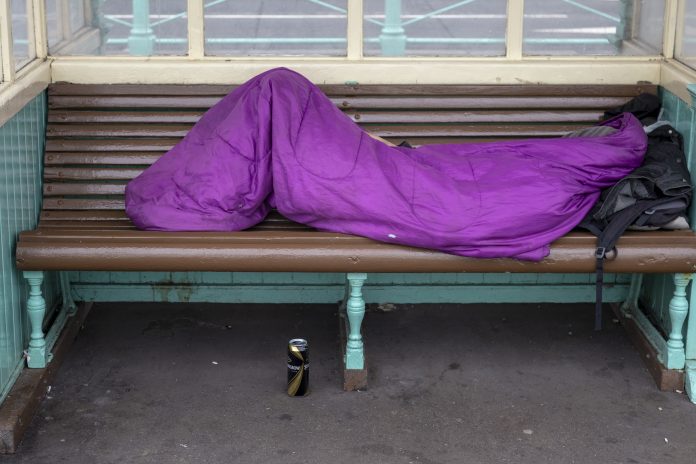Bev Hurley CBE, Chair of the Institute of Economic Development, calls for “a sharp and clear focus” in the Shared Prosperity Fund to reduce inequality
Post-Brexit funding is, of course, a major focus of discussion among economic development professionals in terms of the outlook for supporting economic growth and regeneration.
What we know following the Chancellor’s Spring Budget is UK government has committed to at least matching EU receipts through the new Shared Prosperity Fund, reaching on average £1.5 billion a year, with investment from EU Structural Funds continuing to be spent by local areas until 2023. Its long-term vision, to be set out in the Shared Prosperity Fund Investment Framework later this year, is designed to “increase funding for projects that are supporting people and places across the UK, focused on our domestic priorities, growing local economies, and breathing new life into our communities”.
Turning the dial on inequality
What I want to see in that vision is a sharp and clear focus on two or three absolute priorities and needs, accompanied by a long-term commitment to sufficient funding to really target and turn the dial on inequality. Spreading funds across too many areas too thinly is not going to achieve the structural economic changes that are essential if we are serious about not leaving anyone behind. My personal view is the outlook is gloomy, and it is getting gloomier. We are one of the most unequal economies in the developed world and it is far more complex than London and the South East versus the rest: intra-regional inequalities are frequently as stark.
The levels of inequality within the UK are high and increasing on almost every measure, be that child poverty, housing, education, mobility, health, wealth and productivity. A third of our citizens live in the 10% most deprived places, where nearly one in four people suffer from a long-term illness, life expectancy on average is 16 years less than those in richer areas, and over a third have no formal qualifications. The proportion of GDP we spend on state education is exceeded by every country apart from Chile. 4.1 million children live in families earning less than 60% of the UK median income (£16,380 per annum), yet two-thirds of them are in working families. In Blackpool, one in 50 children is cared for by the state.
Funding economic development
Pro-tem, before the Shared Prosperity Fund arrives, we have the UK Community Renewal Fund – an additional £220 million of investment which will “help 100 priority places to pilot imaginative new approaches and programmes that unleash their potential, instil pride, and prepare them to take full advantage of the Shared Prosperity Fund when it launches in 2022”. I welcome the focus on place, and admire the words about unleashing potential and instilling pride, to which I would have added increasing ambition and providing hope and self-belief, especially for young people – we have to help them escape from expectation poverty.
However, I suspect that given the six-month delivery timeframe, the reality is that a lot of the £220 million will simply be given out as grants to get the money out of the door. The community renewal fund is just the latest in a plethora of funds and bidding for these various pots of money, then managing and monitoring them if successful, puts an enormous additional strain on hugely stretched local resources and capacity. Short-term thinking and planning for the levelling up agenda have to be replaced by a single financial commitment and focus that spans generations. I am so frustrated that nearly five years since the Brexit vote, we are still waiting for the vision of the Shared Prosperity Fund.
Future policy frameworks require high levels of local leadership, collaboration, accountability and transparency, a willingness to take some risk and be innovative, and appropriate long-term funding and ceding of control by central government. I would also encourage us all to consider how supporting economic growth and regeneration reflects this critical point: putting inclusive growth at the heart of all public investment. We need to ensure public spend leverages the maximum social, economic and financial return on investment for businesses, communities and individuals, and makes a measurable positive difference in tackling our inequalities.
Outcomes & opportunities
This is about improving outcomes by increasing access to, and uptake of, opportunities, removing all barriers to participation and moving the dial. It is also about making better efforts to include the excluded – a bottom-up and top-down approach is needed to build local legitimacy. Without involving those who currently have no voice, how can you understand their needs and experiences and ensure they are taken into account? Inclusivity has to be mainstreamed; it is not a fringe activity. The left-behind are not ‘hard to reach’ – go where they go, and you will find them. And we all need to step up to the plate and do our part, as individual citizens, as employees and employers.
Bev Hurley CBE, Chair of the Institute of Economic Development, in the UK’s is a body representing economic development and regeneration practitioners working for local and regional communities.




![Europe’s housing crisis: A fundamental social right under pressure Run-down appartment building in southeast Europe set before a moody evening sky. High dynamic range photo. Please see my related collections... [url=search/lightbox/7431206][img]http://i161.photobucket.com/albums/t218/dave9296/Lightbox_Vetta.jpg[/img][/url]](https://www.openaccessgovernment.org/wp-content/uploads/2025/04/iStock-108309610-218x150.jpg)






